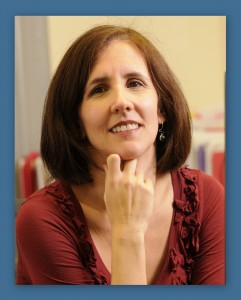Then and Now: Marina Walker Guevara
Marina Walker Guevara
Fellowship Year: 2002
Fellowship Host News Organization: The Philadelphia Inquirer
Current Position: Deputy Director, International Consortium of Investigative Journalists, a project of the Center for Public Integrity. The ICIJ brings together reporters from around the world to collaborate on investigative reporting.
Biography: Marina Walker Guevara has been a leader in the ICIJ’s most recent and most ambitious project, Secrecy for Sale: Inside the Offshore Money Maze: 112 reporters in 58 countries analyzed 2.5 million secret records to produce an unprecedented examination of offshore tax havens around the world, and the powerful people who benefit from them. A Nieman Foundation report described this international collaboration as “one of the largest in journalism history”. Participating news organizations included the BBC, the Guardian, Washington Post, Le Monde, CBC, Zuddeutsche Zeitung, the Mail & Guardian of South Africa, and the Premium Times of Nigeria. There has been governmental response in dozens of nations since initial publication in spring, 2013.
Marina’s own investigations have won more than 15 national and international awards, including honors from Investigative Reporters and Editors, the Overseas Press Club and the Society of Professional Journalists. She graduated from the Universidad Nacional de Cuyo in Mendoza and started her journalism career at the Argentinian newspaper Los Andes. Her University of Missouri master’s thesis, on environmental damage in Peru caused by a U.S-based lead smelting company, was honored with a European Commission Lorenzo Natali Prize.
Marina Walker Guevara is passionate about investigative reporting and lives in Washington D.C. with her husband and their two children.
Then and Now
When Marina Walker applied for an Alfred Friendly Press Fellowship in 2002, she had no idea of how great an impact it would have on her life.
Eleven years later, she retains valuable benefits from the fellowship, like the confidence and expertise she gained in her own journalistic skills. She also learned the value of mentorship, thanks to advisers such as Professor Gary Weaver of American University and their guidance throughout the program, and of long-lasting friendships.
It was at her host newsroom, the Philadelphia Inquirer, that she realized how important it is to develop and work with mentors. They could help her navigate bureaucracy and move past seemingly intractable obstacles.
She decided to think creatively about things she could contribute to the paper, rather than be frustrated with a status quo.
“I was able to say, ‘Okay, they are not covering the Hispanic community and I happen to speak Spanish‘,” Marina said in a recent interview, “So I called leaders of the Hispanic community and tried to find different aspects that I could cover”.
“I wrote a story about the tango scene in Philadelphia that was pretty popular. And that also led to other stories, like the ones I wrote about the wave of heroin addiction in the city at the time.”
The Friendly Fellowship also contributed greatly to Marina’s reporting skills.
“I started doing some of my best work after the fellowship,” she said.
“Some of the things that I admire about American journalism are the precision and the accuracy of the reporting, and I learned a lot of that. I also improved my techniques and became a lot more focused on documents and databases, collecting evidence, being systematic – all the good traits of an investigative journalist. At the same time, I was also focusing on narrative and storytelling.”
When she returned to Argentina, Marina wanted to affect changes in the newspaper for which she worked. She convinced her editors to create an investigative reporting unit and brought attention to the use of public records.
“Something I learned from the fellowship is the whole idea of journalists as watchdogs of the government,” Marina said. “In Argentina, as in other Latin American countries, we still don’t have a decent law to access public records. Our journalists don’t have the concept that we can base our story on government documents — that we have the right to use them.”
Being an Alfred Friendly Fellow is not only about work. There are fun parts, too. One of Marina’s greatest memories was a trip to Chicago. The fellows went sailing around Lake Michigan with Alfred Friendly leaders such as then-director Susan Albrecht, Jackie Combs-Nelson, her husband Rock Lowell Nelson and William Recktenwald of the Chicago Tribune.
Marina also became close friends with her host Gayle Sims and mentor Paula Fuchsberg, both of the Philadelphia Inquirer. They took Marina to baseball games, restaurants, parades and tried to show her bits of American culture.
“They just wanted me to have the whole experience, and they both remained very close to me over the years,” Marina said. Gayle introduced Marina to the man who is now her husband, and Paula, Gayle and Susan Albrecht attended their wedding in Argentina.
Advice for future Alfred Friendly fellows?
“Be humble,” Marina said, “because there’s a lot to learn in those newsrooms. There are going to be those days where you think they are not using your skills or you’re not writing the stories you want.
“But in the end, it’s up to you. Don’t expect to get all the great assignments and all the perfect treatment. You have to be your biggest cheerleader and make things happen on your own.”
Twitter: @MarinaWalkerG

